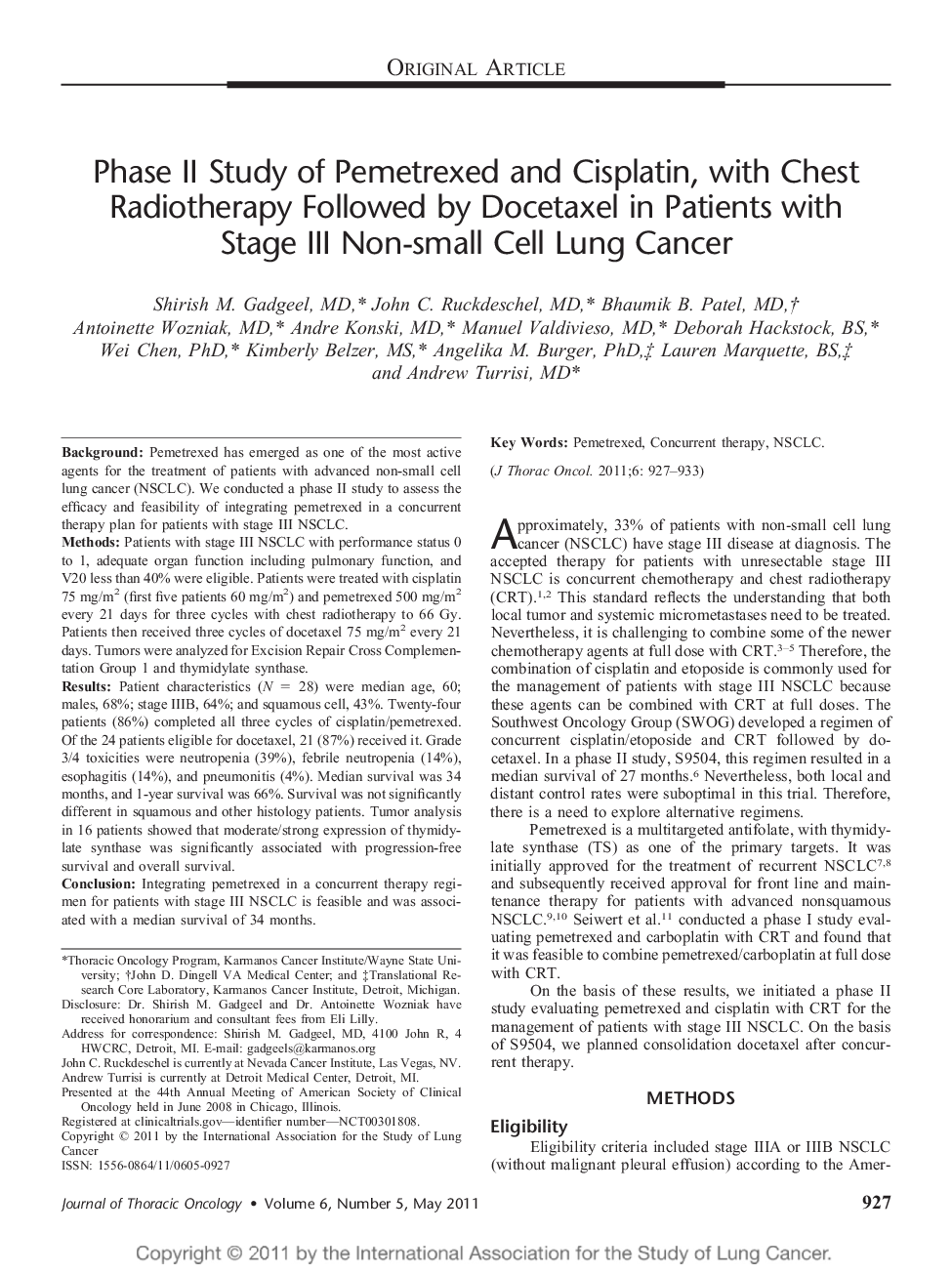| Article ID | Journal | Published Year | Pages | File Type |
|---|---|---|---|---|
| 3990373 | Journal of Thoracic Oncology | 2011 | 7 Pages |
BackgroundPemetrexed has emerged as one of the most active agents for the treatment of patients with advanced non-small cell lung cancer (NSCLC). We conducted a phase II study to assess the efficacy and feasibility of integrating pemetrexed in a concurrent therapy plan for patients with stage III NSCLC.MethodsPatients with stage III NSCLC with performance status 0 to 1, adequate organ function including pulmonary function, and V20 less than 40% were eligible. Patients were treated with cisplatin 75 mg/m2 (first five patients 60 mg/m2) and pemetrexed 500 mg/m2 every 21 days for three cycles with chest radiotherapy to 66 Gy. Patients then received three cycles of docetaxel 75 mg/m2 every 21 days. Tumors were analyzed for Excision Repair Cross Complementation Group 1 and thymidylate synthase.ResultsPatient characteristics (N = 28) were median age, 60; males, 68%; stage IIIB, 64%; and squamous cell, 43%. Twenty-four patients (86%) completed all three cycles of cisplatin/pemetrexed. Of the 24 patients eligible for docetaxel, 21 (87%) received it. Grade 3/4 toxicities were neutropenia (39%), febrile neutropenia (14%), esophagitis (14%), and pneumonitis (4%). Median survival was 34 months, and 1-year survival was 66%. Survival was not significantly different in squamous and other histology patients. Tumor analysis in 16 patients showed that moderate/strong expression of thymidylate synthase was significantly associated with progression-free survival and overall survival.ConclusionIntegrating pemetrexed in a concurrent therapy regimen for patients with stage III NSCLC is feasible and was associated with a median survival of 34 months.
